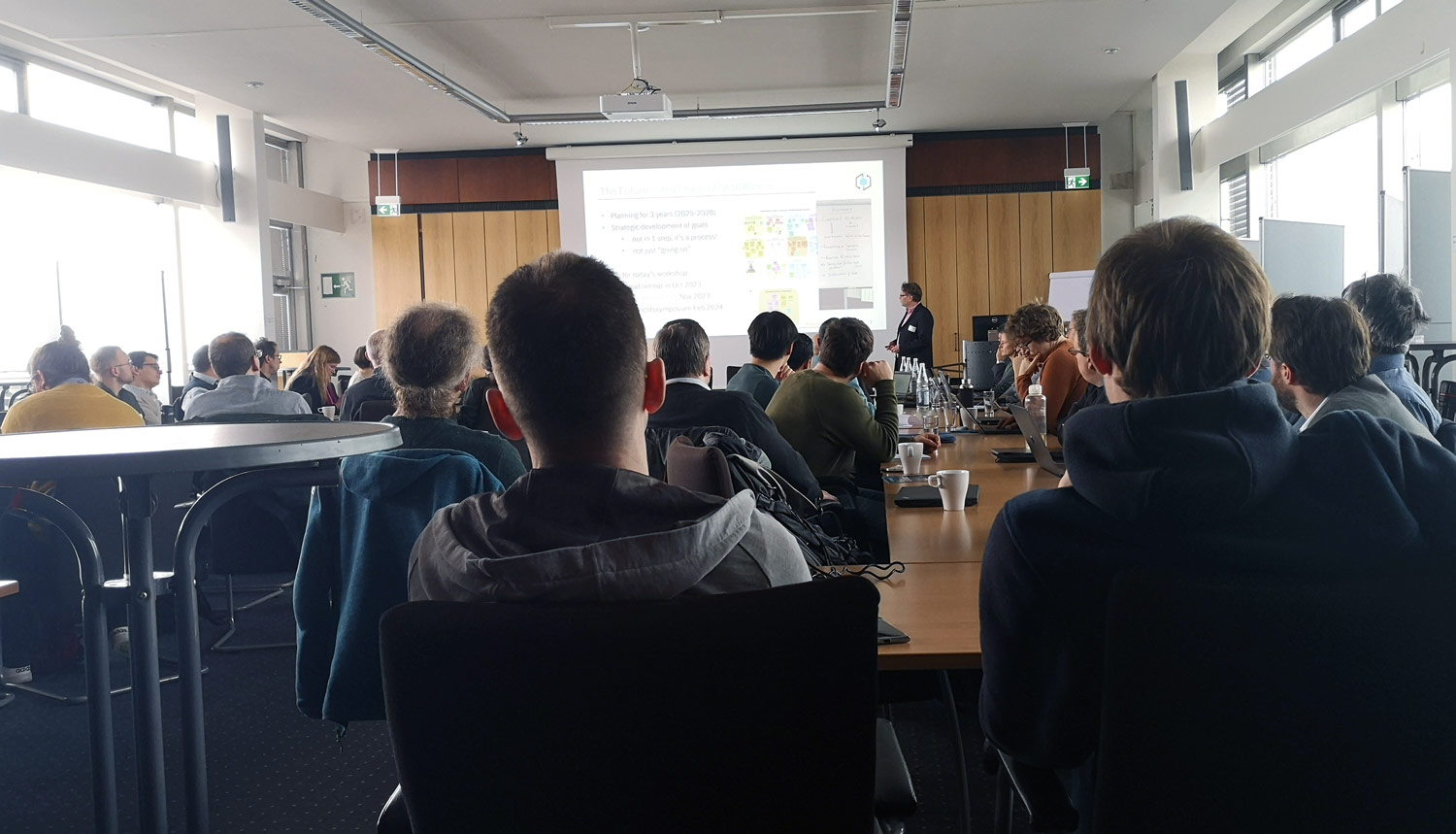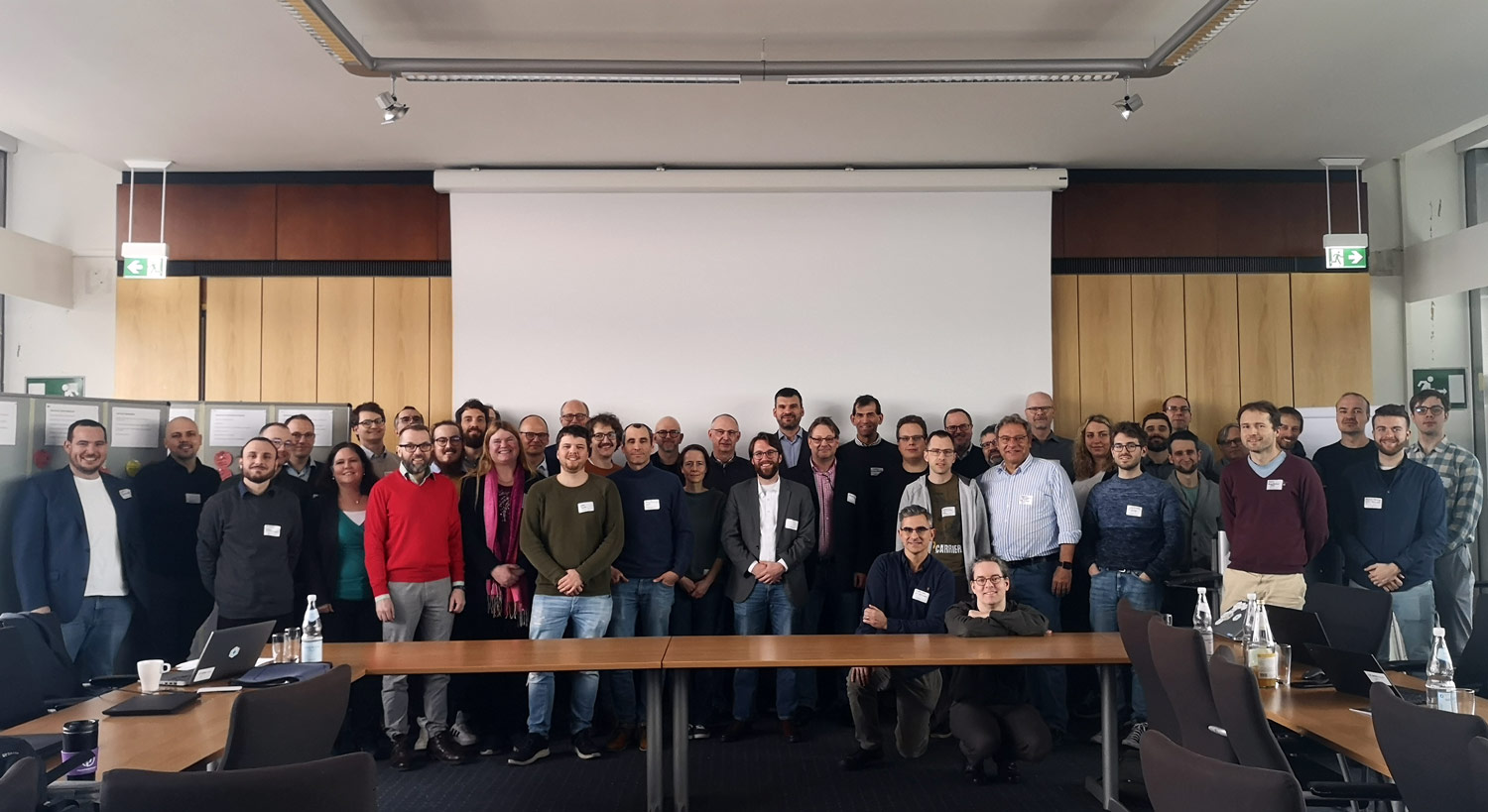The second public NFDI4Chem community workshop took place on February 26, 2024. The workshop marked the start of planning the second application to take the NFDI4Chem consortium into the second funding phase from 2025.
As with the first application, the entire chemical community was invited to jointly identify relevant topics relating to digital chemistry and research data management (RDM) and bring together key players. Around 50 chemists from over 30 institutions from research, education and industry accepted the invitation to Mainz.

Based on the key topics of the first funding phase, the requirements for the established six task areas were discussed. At the beginning the task leaders presented their areas and their results to date. They also offered initial ideas for the future design of the consortium. Then the participants identified further challenges, discussed possible solutions and identified the needs of the community. These should form the basis for the content of the next funding application.
Focus
The discussions focused on the “Smart Labs”, “Standards” and “Community & Training” TAs, for which a large number of suggestions and contributions were collected and structured. In line with the orientation of the workshop and the focus on the national community representatives, requirements for the task areas “Repositories” and “Synergies” were also recorded, but were less in focus compared to the community-related topics.
From the consortium’s perspective, it was particularly pleasing that many new NFDI stakeholders responded to the call. For example, electrochemistry and theoretical chemistry had previously been underrepresented. Now several representatives of these domains took part in Mainz in order to integrate their specific requirements in the future. Much can be made up for, particularly in the adaptation of infrastructure in the area of “smart labs” and “repositories”.
Another pleasing contribution was the integration of RDM into academic teaching, e.g. using electronic lab books in chemistry practicals. This is because the teaching of “digital literacy”, part of the GDCh’s teaching recommendations, has so far been included in very few curricula.
Looking to the future
The application for the second funding phase will be written over the next few months. With the input of the representatives of the chemical community gathered in Mainz, we are looking forward to the upcoming coordination processes.
